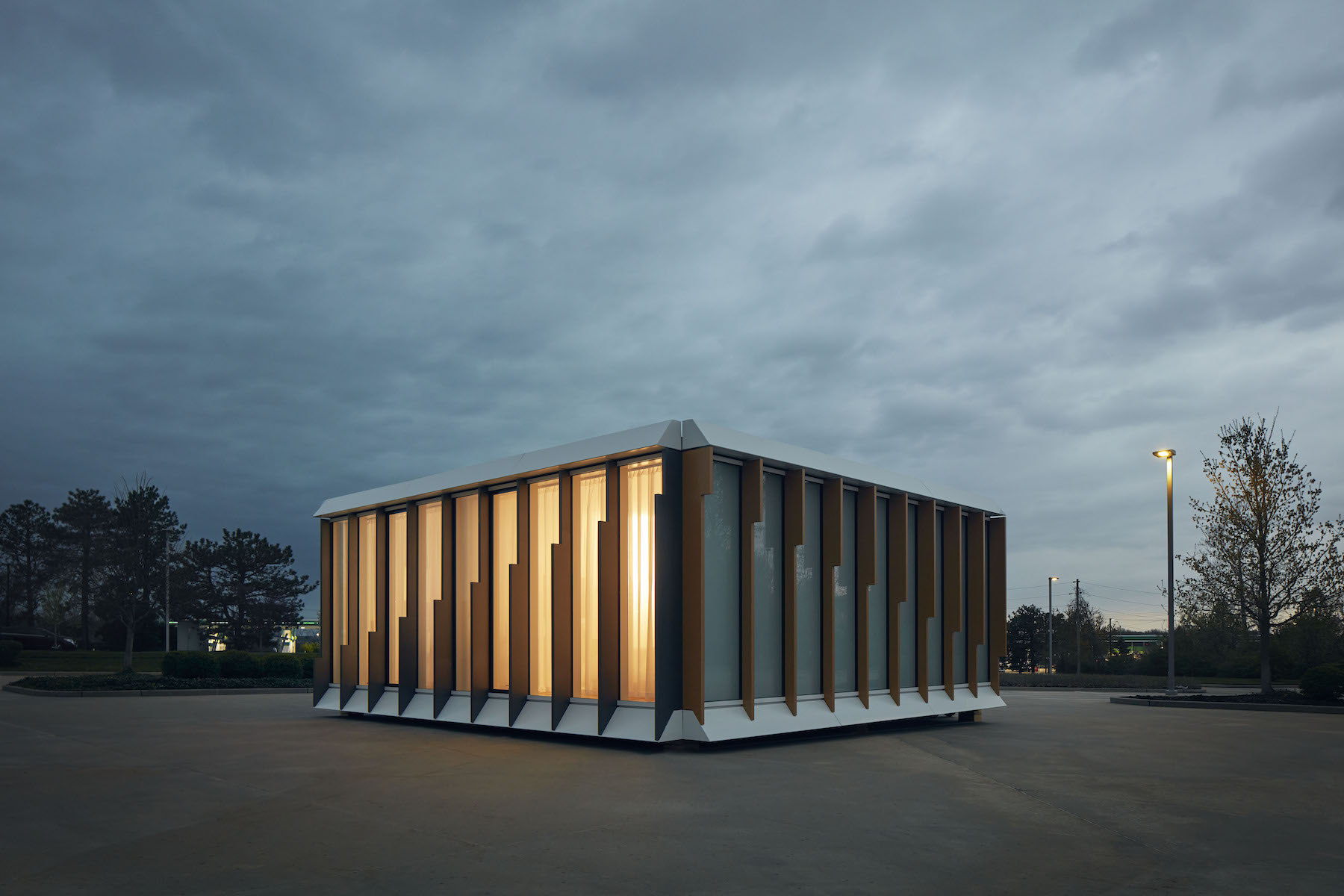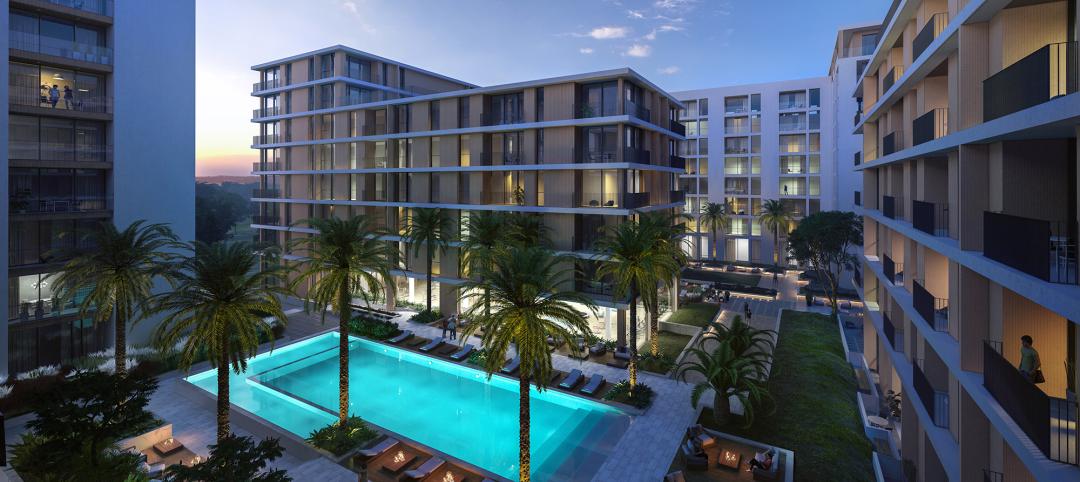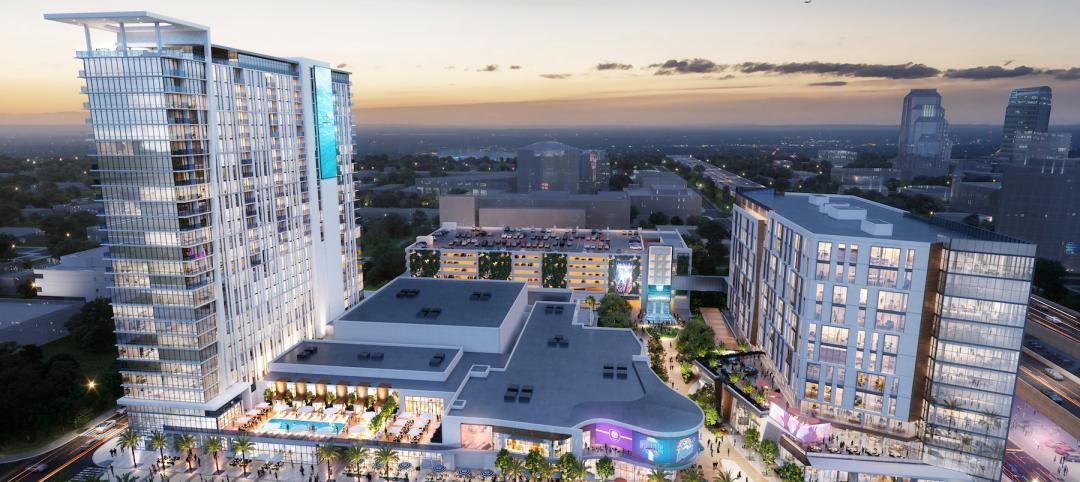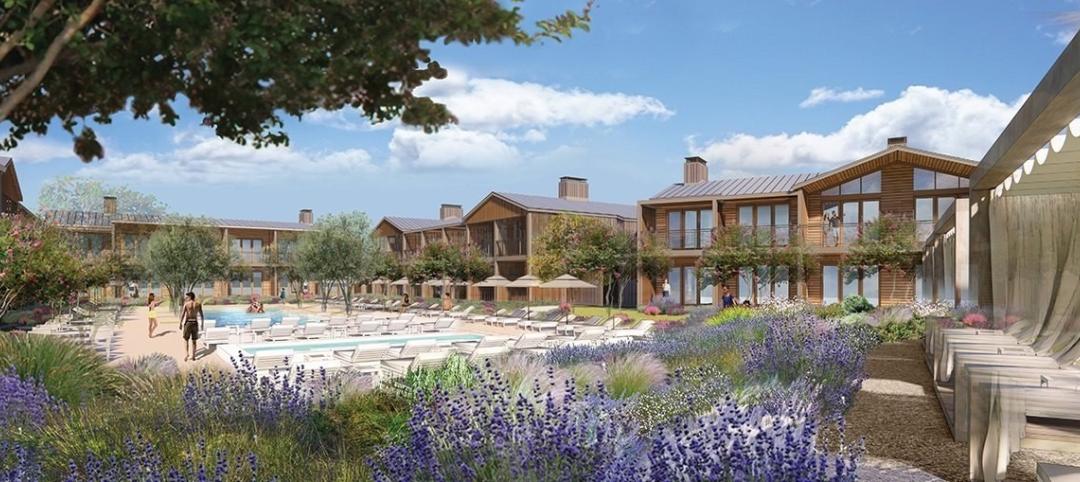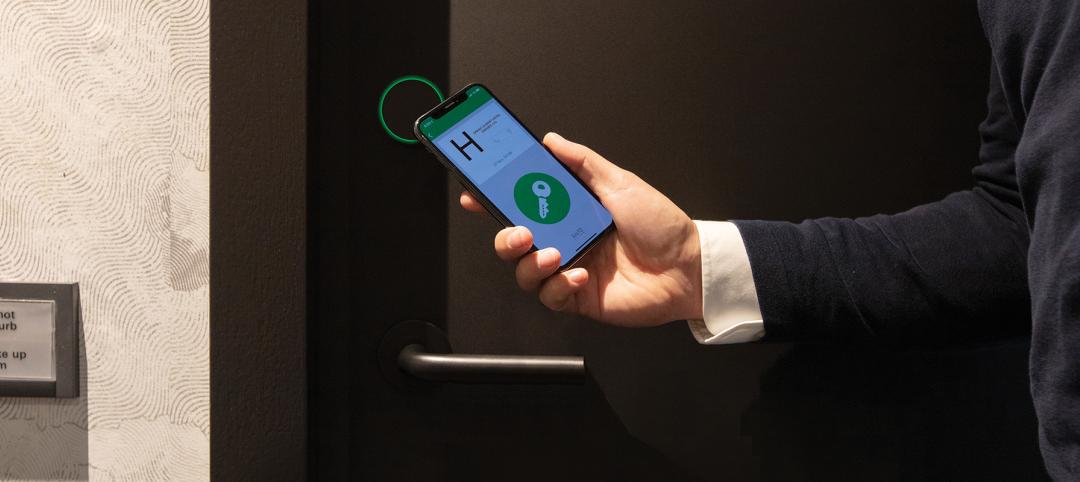Last May, MiTek, a construction software and building services company that’s part of Warren Buffett’s Berkshire Hathaway conglomerate, formed a partnership with Danny Forster & Architecture to promote modular design and construction, a building method that has made inroads into certain sectors (hotels, healthcare, schools, warehouses), but has struggled to attain profitability.
The core of this partnership, known as the Modular Initiative, is its Modular Activation Platform that purports to simplify constructing a modular building by providing everything developers and contractors need to complete the project.
As reported in Fast Company, the joint venture has some advantages over other modular-focused companies, not the least being the financial backing of its parent. Danny Foster & Architecture’s previous design work has included the 168-key AC Nomad Hotel by Marriott in Manhattan, which at 26 stories would be the tallest modular hotel in the U.S. MiTek’s businesses include manufacturing of structural steel, high-rise building facades, and fireproof wallboards.
Since May 2017, when Marriott International unveiled its plans to expand its initiative to drive the adoption of modular construction of hotels in the U.S., industry watchers have been waiting for modular manufacturing for commercial construction to take off. But that trajectory has been less than encouraging, especially after high-profile prefab practitioners Katerra and Skender Manufacturing folded, victims of a pandemic that slowed construction, and, in Katerra’s case, financial and managerial disarray.
And on June 8, the Wall Street Journal reported that the 360-ft-tall AC Nomad Hotel project—which is not using the MiTek approach—had stalled, with its 100 modules made by Skystone Modular in Poland sitting on a dock in Brooklyn, and the project’s owner—the developer 842 Enterprises, controlled by the Chun family—scrambling to raise additional funding to finish the $80 million hotel.
LOGISTICS COSTS STILL A ROAD BUMP
On the other hand, there have been successes for modular in the hospitality arena. The developer citizenM has built several modular hotels in the U.S. In Kings Mountain, N.C., the Catawba Nation this summer is opening a “prelaunch” casino, assembled from prefabricated modules, that will have 500 slot machines and serve as a first stage for the Nation’s Two Kings Casino Resort, which is scheduled to open next year. And Marriott continues to favor modular construction for its urban-centric AC Hotels brand.
“There’s a lot of curiosity around modular construction,” observes Sergio Saenz, Principal and Director of Hospitality for HKS. Mark Pratt, LEO A DALY’s Global Hospitality Practice Leader, says more clients are inquiring about modular construction, and his firm is using modular guest bathroom options in some of its current hotel projects.
But so far, Shawmut Design & Construction and its hotel clients have eschewed modular construction methods. Randy Shelly, the firm’s Executive Vice President of Hospitality, explains that the hotel/resort sector has been slower to adopt modular construction for two reasons: the “significant” cost of transporting modules long distances, and the design limitations of modular production at a time when hotels are seeking ways to differentiate themselves aesthetically.
Shelly did note, however, that as new regional production facilities open, transportation costs could fall and make modular a more viable option for hotel construction.
Related Stories
Smart Buildings | Jul 25, 2024
A Swiss startup devises an intelligent photovoltaic façade that tracks and moves with the sun
Zurich Soft Robotics says Solskin can reduce building energy consumption by up to 80% while producing up to 40% more electricity than comparable façade systems.
Adaptive Reuse | Jun 13, 2024
4 ways to transform old buildings into modern assets
As cities grow, their office inventories remain largely stagnant. Yet despite changes to the market—including the impact of hybrid work—opportunities still exist. Enter: “Midlife Metamorphosis.”
Adaptive Reuse | May 9, 2024
Hotels now account for over one-third of adaptive reuse projects
For the first time ever, hotel to apartment conversion projects have overtaken office-to-residential conversions.
Adaptive Reuse | Apr 29, 2024
6 characteristics of a successful adaptive reuse conversion
In the continuous battle against housing shortages and the surplus of vacant buildings, developers are turning their attention to the viability of adaptive reuse for their properties.
Hotel Facilities | Apr 24, 2024
The U.S. hotel construction market sees record highs in the first quarter of 2024
As seen in the Q1 2024 U.S. Hotel Construction Pipeline Trend Report from Lodging Econometrics (LE), at the end of the first quarter, there are 6,065 projects with 702,990 rooms in the pipeline. This new all-time high represents a 9% year-over-year (YOY) increase in projects and a 7% YOY increase in rooms compared to last year.
Mixed-Use | Apr 23, 2024
A sports entertainment district is approved for downtown Orlando
This $500 million mixed-use development will take up nearly nine blocks.
Hotel Facilities | Apr 17, 2024
Will the surge in hotel construction carry resorts with it?
The resort corner of the hospitality sector has been a bit slower to expand than the whole for the past few years. But don’t tell that to Bill Wilhelm, President of R.D. Olson Construction.
Sponsored | Hotel Facilities | Apr 8, 2024
The Rise of Mobile Keys in Hospitality
Unlocking the future of hospitality—mobile keys are transforming the guest experience and streamlining hotel ops.
Adaptive Reuse | Mar 30, 2024
Hotel vs. office: Different challenges in commercial to residential conversions
In the midst of a national housing shortage, developers are examining the viability of commercial to residential conversions as a solution to both problems.
Adaptive Reuse | Mar 26, 2024
Adaptive Reuse Scorecard released to help developers assess project viability
Lamar Johnson Collaborative announced the debut of the firm’s Adaptive Reuse Scorecard, a proprietary methodology to quickly analyze the viability of converting buildings to other uses.


